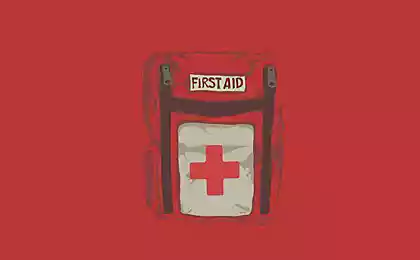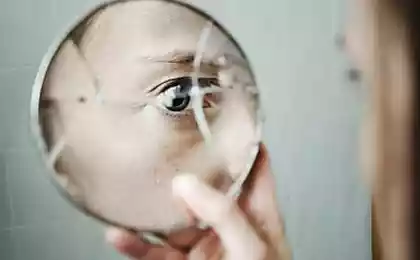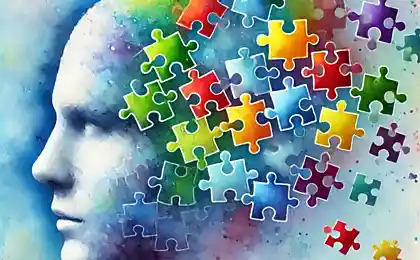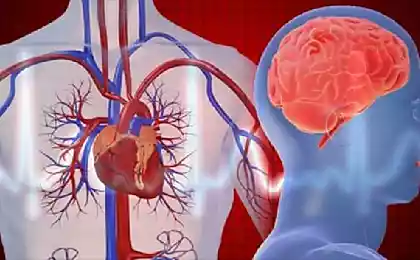590
One drug... many side effects...
In recentyears,massivelyincreased use of a class of drugs called "atypical antipsychotics".
These drugs, which include seroquel, zyprexa, and abilify risperdal, is only approved to treat disabling mental illness, but psychiatrists and doctors of primary health care writethem in suchconditions, the treatment ofwhichthey were never intended.
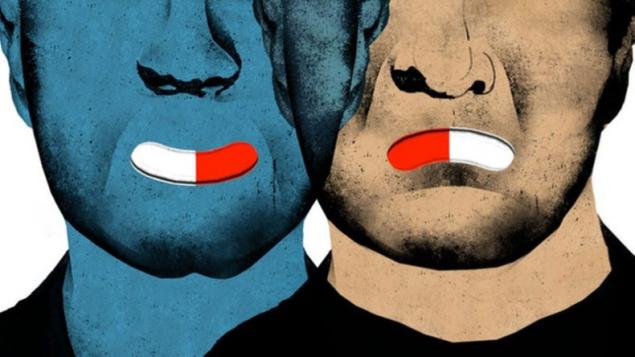
For example:
Since 2005, on the packaging of atypical antipsychotic medications to apply caution in a black frame — the most serious of allpossible — warning that the use of thesedrugs in elderly patients with dementia increases risk of death.
According to the Department of quality control of products and medicines USA, antipsychotic drugs not listed drugs for the treatment of psychosis associated with dementia. However, many doctors continued to prescribe antipsychotics in dementia.
Improper use of dangerous antipsychotics in children
A number of the atypical antipsychotics approved for the treatment of severe depression.
To drugs in this class include:
· Aripiprazole (Abilify)
· Asenapine maleate (Saphris)
· Clozapine (Clozaril)
· Iloperidone (Fanapt)
· Lurasidone (Latuda)
· Olanzapine (Zyprexa)
· Olanzapine/Fluoxetine (Symbyax)
· Paliperidone (INVEGA)
· Quetiapine (Seroquel)
· Risperidone (Risperdal)
In the article the Washington post was recently made a shocking discovery: it turns out that kids being brought up in foster families provide a disproportionate number of powerful psychotropic drugs. Children in foster care are not only getting a whole lot more psychotropic drugs than other children, but even more medication than children with the most severe forms of mental illness!
It is an absolute tragedy, as these kids pumped up drugs not medically necessary and primarily for the convenience of caregivers and making profits within the "system".

Whether children of preschool age to diagnose a serious mental disorder?
In our days antipsychotic drugs are discharged, even an eight month old children, despite the fact that the diseases to treat which they are intended, rarely occur before the onset of adolescence. So why do the kids get these powerful drugs?
Unfortunately, one of the main reasons for their use is their sedative effect. They usually write to monitor "destructive" behavior, and not for the treatment of serious mental disorders. The growth in the use of antipsychotic drugs in young children is largely due to the dubious diagnosis of "pediatric bipolar disorder".
Just boggles the mind, how could so increase the number of diagnosed mentaldisorders in children. The only rational explanation is a manipulation of the definition that justifies the misuse of drugs in children.
One drug... many side effects...
According to a study published last year, prescription of antipsychotic drugs misused in the period 1995 to 2008 has doubled — from 4.2 million to an incredible 9 million prescriptions.
It is estimated that in 2008 in the USA on antipsychotic drugs prescribed for other purposes, spent $ 6 billion, of which 5.4 billion was spent on medicines, which application was based on false testimony!
To take antipsychotic drugs to treat, say, insomnia is like that of firing a Bazooka to get rid of the mosquito. This is more than overkill — it is, as I quote in that article, Dr. Adrian Fugues-Berman: "absolute chaos."
Unfortunately, relentless advertising has helped "normalize" these drugs, so people don't think too much when taking them off. Take, for example, abilify (aripiprazole). He is licensed for the treatment of bipolar disorder, schizophrenia, autism, and severe depression, combined with the use of antidepressants. That is, it is used to enhance the action of antidepressants.
This, of course, because antidepressants are not as effective as says the is. Numerous studies have shown that antidepressants are not more effective than a sugar pill.
Abilify is a perfect example of the spread and increase of polypharmacy.

The word "polypharmacy" means "many drugs" and, essentially, describes those cases when a person takes too many drugs — either because he prescribed more drugs than necessary, as clinically indicated, or when the pill becomes the patient's burden.
Previously, this situation was typical, primarily for elderly patients who typically take more medications than younger people. But over the lastfew years, even three year old children are increasingly prescribedfour or more drugs! This is a serious problem, because the more drugs you mix, the greater your chances of developing serious side effects.
People (of all ages) taking psychotropic drugs appears to be particularly prone to polypharmacy, which is particularly troubling because each of these drugs is quite potent and potentially dangerous, even when taken by itself.
Abilify, for example, as many as 75 different side effects, including:
An underactive thyroid (hypothyroidism) or increased function of the thyroid gland (hyperthyroidism)
Gastroesophageal reflux disease (GERD)
Irritable bowel syndrome (IBS)
Stones in gallbladder and kidney
Yeast infection
Arthritis
Carpal tunnel brush
Impotence
Antipsychotic drugs: polypharmacy, excessive price, excessive selling
According to Sandra B. Goodman, author of the mentioned article:
"For antipsihoticeskih typical excess application, excess price and excess sales", – said Allen Frances, former head of the Department of psychiatry at the Medical school of Duke University, who headed a special team that wrote DSM-IV, the Bible of psychiatric diagnosis.
Although a reasonable use may be appropriate for those who do not respond to other treatments, if, say, severe obsessive-compulsive disorder, according to Francis, the drugs are designed to calm patients, reduce hallucinations and delusions in psychosis, are "reckless and indiscriminate" often to control behavior, without worrying about they cause serious side effects.
Doctors are allowed to prescribe Lekarstva the application has not received approval cases, but companies are not allowed to advertise them takahash.
For poludnitskaia years the main producers of drugs have committed more than $ 2 billion for the settlement of suits brought by States and the Federal government over illegal marketing; some cases are still at the trial stage, as thousands of lawsuits from patients.
In 2009, the company EliLillyandCo. paid the Federal government a record $ 1.4 billion to settle charges of illegal marketing "Zyprexa" in the framework of the campaign "5 in 5", which literally called for homes to enter the patients 5 milligrams of the drug at 5 PM to get them to sleep."
Who decides what is a mental illness
Modern psychiatry has expanded its influence so that even the most normal of emotions and mental States now fall under the definition of a "disorder". They cleverly define mental illness with the "guidelines for the diagnostic and statistical manual of mental disorders (DSM)". This book is created by members of the American psychiatric Association"
You probably think that these reasons in this book, the disease got there as a result of the review of carefully conducted scientific research, but it is very far from the truth. Additions and changes to this manual are determined by the votes of its members. This categorization is absolutely NOT based on science! Documentary evidence evidence that psychiatric drugs in General and atypical antipsychotics, in particular, polls are used incorrectly.
The overuse and misuse of thesedrugs is very expensive — it's worth your health. If you fall into the category of patients who incorrectly prescribed psychiatric drugs — that today the norm rather than the exception — you should know that there are better and safer alternatives.
And for those of you who are taking properly prescribed medication, on the basis of the diagnosis of mental illness, I want to advise to be aware of their potential side effects to avoid more serious illnesses.
By making key changes to your lifestyle, you will be able to resist one of the most devastating side effects and maintain a better state of health.
Normal everyday challenges are now considered medical problems
As written in the mentioned article "WashingtonPost":
"Wayne Blackmon, a psychiatrist and a lawyer, lecturer in law school of George Washington University, says that often advises patients, receiving more than one antipsychotic that increases the risk of side effects. Blackmon calls them as "stock medicines" that the doctors prescribed whenever patients are faced with a difficult life situation.
Somehow the doctors got it into his head that it was acceptable to use. The doctors, according to him, there is a financial incentive to prescribe drugs, which are widely considered to be a faster solution than time-consuming assessment of the patient's condition and non-drug treatment, such as behavioral therapy, which is not covered by insurance".
Alas, the cure is not to sell, if not to convince people that they are sick. In the center of the problem is the DSM-IV(the Manual for diagnosis and statistics of mental disorders), as well as a variety of new, overlapping diseases, invented for the sake of treatment (i.e. medication).
The main dilemma is that a "disorder" is applicable to almost any of us at one time or another, so any of us, or rather, ALL of us at some point can you find a reason to take medication.
The practice of systematically inventing new illnesses or exaggerating minor for the purpose of selling more number of goods have name. This "disease mongering" — a practice which has long been used by the companies-manufacturers of drugs.
And as irrational as it may seem, drugs can "cure" any of the following "disorders":
To prescribe dangerous psychotropic drugs to adults is a bad thing in itself, but one of the target groups of the population barely got out of diapers. In 2007 alone, half a million children and adolescents received at least one prescription for antipsychotic drugs, including 20500 people under the age of 6 years.
Children get most of the drugs in the world. So, they get three times more prescriptions for antidepressants and stimulants and twice more antipsychotic drugs than children in Germany and the Netherlands.
How do we, as a society, can admit that the profits of corporations more of our lives and even the lives of children? And why are so few people ready to act and really expose the corruption once and for all?
If you or your child is suffering from emotional or mental problems, of course, ask for help, but to someone who does not believe psychotropic drugs are the first line of defense. Will be very helpful if in the beginning you optimize diet and lifestyle for your child, as this will greatly increase the likelihood of any successful natural intervention.
Can vitamin to help with psychosis
I will be interviewing Dr. Andrew Saul about his new book "Niacin": the real story: learn about the wonderful healing properties of Niacin. He wrote this book in collaboration with a doctor of medicine Abraham Hoffer, who published over 600 reports and articles as well as 30 books. His early work led to the use of Niacin to treat schizophrenia and as a drug of cholesterol.
Dr. Hoffer died in 2009 at the age of 91 years, but he has successfully treated thousands of patients from mental disorders high doses of Niacin. He presented some very convincing evidence in supportof the treatmentof most mentaldisorders like deficiencyof vitamin B3.
Given its very low cost and virtually no dangerous side effects, he certainly deserves the attention of all who have a family member with this problem mental health.published
© Dr. Joseph Mercola
P. S. And remember, only by changing their consumption — together we change the world! ©
Source: //russian.mercola.com
These drugs, which include seroquel, zyprexa, and abilify risperdal, is only approved to treat disabling mental illness, but psychiatrists and doctors of primary health care writethem in suchconditions, the treatment ofwhichthey were never intended.

For example:
- Anxiety
- The attention deficit disorder
- Insomnia
- Behavioral problems in children of preschool age and
- Dementia
Since 2005, on the packaging of atypical antipsychotic medications to apply caution in a black frame — the most serious of allpossible — warning that the use of thesedrugs in elderly patients with dementia increases risk of death.
According to the Department of quality control of products and medicines USA, antipsychotic drugs not listed drugs for the treatment of psychosis associated with dementia. However, many doctors continued to prescribe antipsychotics in dementia.
Improper use of dangerous antipsychotics in children
A number of the atypical antipsychotics approved for the treatment of severe depression.
To drugs in this class include:
· Aripiprazole (Abilify)
· Asenapine maleate (Saphris)
· Clozapine (Clozaril)
· Iloperidone (Fanapt)
· Lurasidone (Latuda)
· Olanzapine (Zyprexa)
· Olanzapine/Fluoxetine (Symbyax)
· Paliperidone (INVEGA)
· Quetiapine (Seroquel)
· Risperidone (Risperdal)
In the article the Washington post was recently made a shocking discovery: it turns out that kids being brought up in foster families provide a disproportionate number of powerful psychotropic drugs. Children in foster care are not only getting a whole lot more psychotropic drugs than other children, but even more medication than children with the most severe forms of mental illness!
It is an absolute tragedy, as these kids pumped up drugs not medically necessary and primarily for the convenience of caregivers and making profits within the "system".

Whether children of preschool age to diagnose a serious mental disorder?
In our days antipsychotic drugs are discharged, even an eight month old children, despite the fact that the diseases to treat which they are intended, rarely occur before the onset of adolescence. So why do the kids get these powerful drugs?
Unfortunately, one of the main reasons for their use is their sedative effect. They usually write to monitor "destructive" behavior, and not for the treatment of serious mental disorders. The growth in the use of antipsychotic drugs in young children is largely due to the dubious diagnosis of "pediatric bipolar disorder".
Just boggles the mind, how could so increase the number of diagnosed mentaldisorders in children. The only rational explanation is a manipulation of the definition that justifies the misuse of drugs in children.
One drug... many side effects...
According to a study published last year, prescription of antipsychotic drugs misused in the period 1995 to 2008 has doubled — from 4.2 million to an incredible 9 million prescriptions.
It is estimated that in 2008 in the USA on antipsychotic drugs prescribed for other purposes, spent $ 6 billion, of which 5.4 billion was spent on medicines, which application was based on false testimony!
To take antipsychotic drugs to treat, say, insomnia is like that of firing a Bazooka to get rid of the mosquito. This is more than overkill — it is, as I quote in that article, Dr. Adrian Fugues-Berman: "absolute chaos."
Unfortunately, relentless advertising has helped "normalize" these drugs, so people don't think too much when taking them off. Take, for example, abilify (aripiprazole). He is licensed for the treatment of bipolar disorder, schizophrenia, autism, and severe depression, combined with the use of antidepressants. That is, it is used to enhance the action of antidepressants.
This, of course, because antidepressants are not as effective as says the is. Numerous studies have shown that antidepressants are not more effective than a sugar pill.
Abilify is a perfect example of the spread and increase of polypharmacy.

The word "polypharmacy" means "many drugs" and, essentially, describes those cases when a person takes too many drugs — either because he prescribed more drugs than necessary, as clinically indicated, or when the pill becomes the patient's burden.
Previously, this situation was typical, primarily for elderly patients who typically take more medications than younger people. But over the lastfew years, even three year old children are increasingly prescribedfour or more drugs! This is a serious problem, because the more drugs you mix, the greater your chances of developing serious side effects.
People (of all ages) taking psychotropic drugs appears to be particularly prone to polypharmacy, which is particularly troubling because each of these drugs is quite potent and potentially dangerous, even when taken by itself.
Abilify, for example, as many as 75 different side effects, including:
An underactive thyroid (hypothyroidism) or increased function of the thyroid gland (hyperthyroidism)
Gastroesophageal reflux disease (GERD)
Irritable bowel syndrome (IBS)
Stones in gallbladder and kidney
Yeast infection
Arthritis
Carpal tunnel brush
Impotence
Antipsychotic drugs: polypharmacy, excessive price, excessive selling
According to Sandra B. Goodman, author of the mentioned article:
"For antipsihoticeskih typical excess application, excess price and excess sales", – said Allen Frances, former head of the Department of psychiatry at the Medical school of Duke University, who headed a special team that wrote DSM-IV, the Bible of psychiatric diagnosis.
Although a reasonable use may be appropriate for those who do not respond to other treatments, if, say, severe obsessive-compulsive disorder, according to Francis, the drugs are designed to calm patients, reduce hallucinations and delusions in psychosis, are "reckless and indiscriminate" often to control behavior, without worrying about they cause serious side effects.
Doctors are allowed to prescribe Lekarstva the application has not received approval cases, but companies are not allowed to advertise them takahash.
For poludnitskaia years the main producers of drugs have committed more than $ 2 billion for the settlement of suits brought by States and the Federal government over illegal marketing; some cases are still at the trial stage, as thousands of lawsuits from patients.
In 2009, the company EliLillyandCo. paid the Federal government a record $ 1.4 billion to settle charges of illegal marketing "Zyprexa" in the framework of the campaign "5 in 5", which literally called for homes to enter the patients 5 milligrams of the drug at 5 PM to get them to sleep."
Who decides what is a mental illness
Modern psychiatry has expanded its influence so that even the most normal of emotions and mental States now fall under the definition of a "disorder". They cleverly define mental illness with the "guidelines for the diagnostic and statistical manual of mental disorders (DSM)". This book is created by members of the American psychiatric Association"
You probably think that these reasons in this book, the disease got there as a result of the review of carefully conducted scientific research, but it is very far from the truth. Additions and changes to this manual are determined by the votes of its members. This categorization is absolutely NOT based on science! Documentary evidence evidence that psychiatric drugs in General and atypical antipsychotics, in particular, polls are used incorrectly.
The overuse and misuse of thesedrugs is very expensive — it's worth your health. If you fall into the category of patients who incorrectly prescribed psychiatric drugs — that today the norm rather than the exception — you should know that there are better and safer alternatives.
And for those of you who are taking properly prescribed medication, on the basis of the diagnosis of mental illness, I want to advise to be aware of their potential side effects to avoid more serious illnesses.
By making key changes to your lifestyle, you will be able to resist one of the most devastating side effects and maintain a better state of health.
Normal everyday challenges are now considered medical problems
As written in the mentioned article "WashingtonPost":
"Wayne Blackmon, a psychiatrist and a lawyer, lecturer in law school of George Washington University, says that often advises patients, receiving more than one antipsychotic that increases the risk of side effects. Blackmon calls them as "stock medicines" that the doctors prescribed whenever patients are faced with a difficult life situation.
Somehow the doctors got it into his head that it was acceptable to use. The doctors, according to him, there is a financial incentive to prescribe drugs, which are widely considered to be a faster solution than time-consuming assessment of the patient's condition and non-drug treatment, such as behavioral therapy, which is not covered by insurance".
Alas, the cure is not to sell, if not to convince people that they are sick. In the center of the problem is the DSM-IV(the Manual for diagnosis and statistics of mental disorders), as well as a variety of new, overlapping diseases, invented for the sake of treatment (i.e. medication).
The main dilemma is that a "disorder" is applicable to almost any of us at one time or another, so any of us, or rather, ALL of us at some point can you find a reason to take medication.
The practice of systematically inventing new illnesses or exaggerating minor for the purpose of selling more number of goods have name. This "disease mongering" — a practice which has long been used by the companies-manufacturers of drugs.
And as irrational as it may seem, drugs can "cure" any of the following "disorders":
- Sometimes shy? Then you may have "social phobia".
- Interested in the deeper things, for example, the meaning of life? So, you have "religious or spiritual problem".
- Arguing with brother or sister? Then it's "the problem of relationships with other children in the family."
- Your child argues with adults, loses it or annoying people? So, he has "oppositional defiant disorder".
- If you or your teen are not sure which path to choose in life, what your values or career goals, you probably have an "identity problem".
To prescribe dangerous psychotropic drugs to adults is a bad thing in itself, but one of the target groups of the population barely got out of diapers. In 2007 alone, half a million children and adolescents received at least one prescription for antipsychotic drugs, including 20500 people under the age of 6 years.
Children get most of the drugs in the world. So, they get three times more prescriptions for antidepressants and stimulants and twice more antipsychotic drugs than children in Germany and the Netherlands.
How do we, as a society, can admit that the profits of corporations more of our lives and even the lives of children? And why are so few people ready to act and really expose the corruption once and for all?
If you or your child is suffering from emotional or mental problems, of course, ask for help, but to someone who does not believe psychotropic drugs are the first line of defense. Will be very helpful if in the beginning you optimize diet and lifestyle for your child, as this will greatly increase the likelihood of any successful natural intervention.
Can vitamin to help with psychosis
I will be interviewing Dr. Andrew Saul about his new book "Niacin": the real story: learn about the wonderful healing properties of Niacin. He wrote this book in collaboration with a doctor of medicine Abraham Hoffer, who published over 600 reports and articles as well as 30 books. His early work led to the use of Niacin to treat schizophrenia and as a drug of cholesterol.
Dr. Hoffer died in 2009 at the age of 91 years, but he has successfully treated thousands of patients from mental disorders high doses of Niacin. He presented some very convincing evidence in supportof the treatmentof most mentaldisorders like deficiencyof vitamin B3.
Given its very low cost and virtually no dangerous side effects, he certainly deserves the attention of all who have a family member with this problem mental health.published
© Dr. Joseph Mercola
P. S. And remember, only by changing their consumption — together we change the world! ©
Source: //russian.mercola.com
"The memory Palace": the Technique of brain training
Collective stupidity: what happens to the brain of a teenager




